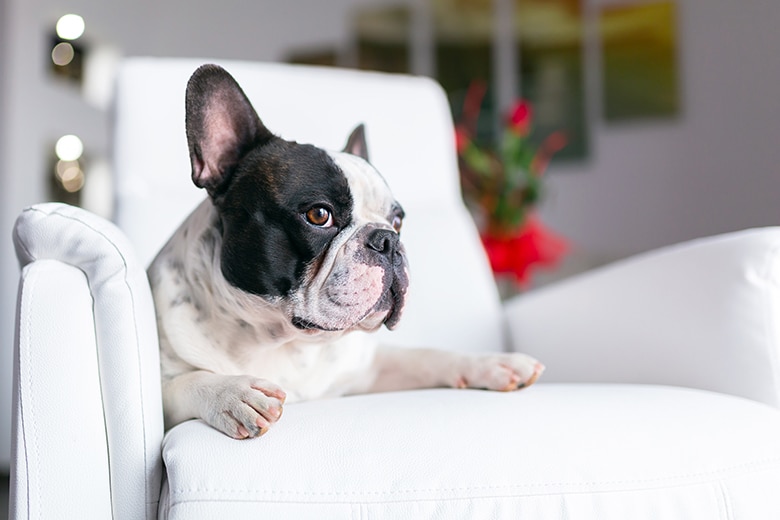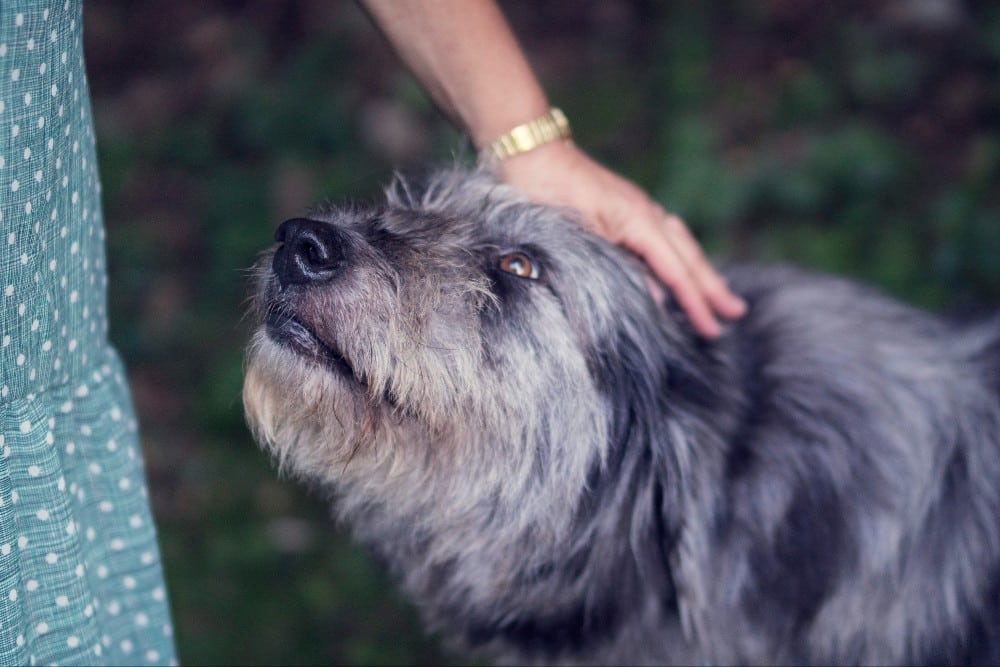A little while ago, I had my first bad asthma attack. I was in the street, and I didn’t have my inhaler. It was close to home, but I heard myself wheezing loudly. I had to climb four flights of steps; my chest felt like it was squeezing shut and I couldn’t get a breath in.
My dogs and cat were home alone. What if I didn’t make it to the front door? What if I made it inside, but I could no longer breathe in the inhaler?
Fortunately, I got to my inhaler just in time. But as I lay on the floor, just breathing, my dogs and cat hovering over me, it got me thinking: What would have happened to my fur family if I had died?
Your dogs are family. You love them as unconditionally as they love you. And even though you take good care of them, one of the hardest parts of being a dog parent is that you outlive your fur babies.
Related: The Most Creative Ways to Keep Your Dog’s Memory Alive After She Passes
But what happens if they outlive you?
Sometimes, the unexpected happens: an accident, a heart attack, a stroke – or in my case, an asthma attack. You don’t come home that night. Your dogs are left on their own in an empty apartment. What will happen to them?
A lot of dogs unfortunately get dumped in shelters by uncaring family members. You probably see their sad, confused faces on social media. Many of them, particularly if they’re older, end up being euthanized.
While it is a scary scenario, there are steps you can take to ensure your dog will be cared for if you die before they do.
Make sure someone knows your dog is alone at home
This is crucial, especially if you live alone, or if your roommate or partner travels a lot. How many times have you read about dogs being found alone in apartments, sometimes for weeks?
The easiest first step is to buy (or make) a card for your wallet letting people know your dog is home alone. The front of the card announces that your pet is at home and asks whoever finds you to call the contact person on the back of the card. There’s sometimes room for alternative contact numbers, and you can check off what kind of pet you have. This means you need to recruit some reliable people to take care of your dog.
Find someone trustworthy and give them access to your home
You need to find someone you completely trust to make sure your dog is well cared for and will follow your instructions. This person will need to get to your dog immediately and take care of her until your assigned dog guardian arrives. If that’s the same person, great. But a backup person is always a good idea; your dog guardian may be on a trip or in some way unavailable for a while. Once you have one or two people, write down feeding instructions, the name and number of your veterinarian and any arrangement you’ve made for a new home. Make a set of keys for them.
Talk to family and friends.
You’re essentially looking for a new home for your dog, so you want to make sure they know how to take care of her. Again, this may not be your boyfriend, girlfriend, husband or wife. This can be a difficult conversation, but the more honest everyone is, the better your plan. If your boyfriend or girlfriend really isn’t a dog person, they may be grateful you’re looking for someone else (even if they don’t say that). You’re looking for the right person to take care — and adore — your dog. It’s not a best friend competition.
It’s helpful to write down a list of your dog’s needs and idiosyncrasies: he likes wet food in the morning, and this brand of kibble, or you home cook his food and this is your recipe; he gets a dental chew in the evening; he likes this toy in particular; he only sleeps with a blanket; etc.
Remember to also list any medical conditions, medications (and dosage) and provide the number and address of your veterinarian and groomer (if you use one). Make sure you’re transparent when “interviewing” potential pet godparents. Not everyone is prepared to give your dog a shot of insulin or deal with his less-than-perfect housetraining.
Related: This Company Turns Your Dog’s Ashes Into Diamonds
If you don’t have anyone you trust with your dog
If you can’t find someone appropriate, there are still steps you can take. Maybe you can find someone who will foster your dog until an appropriate home is found. This is critical: You don’t want your dog to be dumped in a shelter right after they lose you. It’s traumatic enough. There are shelter programs that are specifically set up to care for a surviving pet, such as the North Shore Animal League’s Safe Haven Surviving Pet Care Program. Organizations like 2nd Chance for Pets can be a great resource.
Make a list of no-kill animal rescues in your area. If you adopted your dog from a shelter or rescue, and it’s a shelter that does not euthanize pets, locate any paperwork you have on the adoption, make a copy and give it to your foster. The shelter may take back the dog or (the better option) work with your foster to find a new forever home.
Get it in writing.
A verbal agreement is a good start, but it’s best to have it in writing. Go to a lawyer and make a estate plan. You can draw up a special will or a Pet Trust. These are legal documents that ensure your dog will go to the person you want her to go to. It can also require bonded dogs to be adopted together. Before this step, make sure you have discussed this thoroughly with your dog guardian, including the specifics of your dog’s health and all of her needs and come away confident that the person can handle it. It’s a good idea to list an alternative in case your guardian can’t or is unwilling to take your dog.
A pet trust provides financial assistance to the person taking care of your dog. (A will can take a long time to go through probate, and it can be contested.) A pet trust goes into effect immediately and covers any situation in which you are unable to care for your dog, either permanently or while you’re recovering. You will deposit money into the trust to care for your dog, and a trustee will be responsible for paying your dog’s caretaker a certain amount of money on a regular schedule. A trust is legally enforceable and can be very specific. You can list your dog’s food preference, the number of annual wellness visits, the vaccinations he should get and any other terms you consider essential, but don’t go crazy. The goal is to get your dog into a loving home, not to ensure that she gets a pedicure every month.
After you’ve arranged for a dog “godparent,” do check in with them from time to time — and check in with your alternative, foster and lawyer if you’ve used one. People’s circumstances may change, but your dog will still need a safe, loving home.
While thinking through this may be a bit depressing, in the long run, it will give you peace of mind. And it’s important; your dog is depending on you.


















